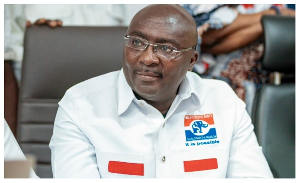Academic institutions across the country has been urged to look into how best local content in the oil sector could best be developed to benefit the citizenry.
Professor Kwamina Panford, a visiting Fulbright Scholar at the Institute for Development Studies at the University of Cape Coast (UCC), made the call at a lecture on “The academia and the successful management of Ghana’s petroleum resources”, organized by the UCC, as part of its occasional public lecture series.
He expressed worry about the fact that between January, 2007 and December 2011, $16 billion spent on various oil related activities in Ghana, only five percent of it was spent on local content.
He therefore suggested that various faculties of tertiary institutions should combine forces and form a consortium that would identify local businesses to provide goods and services required by that sector.
The consortium could also serve as liaison between the local businesses and the oil companies.
Prof. Panford talked about, the technical, financial and environmental issues among others, as well as the challenges the communities close to the operational areas of the oil companies encounter.
He also touched on issues of corporate social responsibility challenges as well as what the industry operators could do to address potential sources of conflict.
Prof. Panford pointed out that the number of Ghanaians employed was not as important as the quality of job positions they hold in these oil firms and urged Ghanaian students to take up oil related courses to enable them to secure high positions in the industry.
On the issue of corporate social responsibility, he called on departments and faculties of the various academic institutions to carry out research in communities close to the operational areas of the oil companies to help them set priorities on the assistance they need from the oil firms.
He said, this would enable the communities get the exact infrastructures they need in their areas instead of the companies “deciding” for them.
On the issue of conflicts, the Professor pointed out that attention needed to be paid to the five kilometre ban that had been placed on fishing activities around the oil installations, saying it was an area of potential conflict.
Prof. Panford called for a serious collaboration between government and the private sector, as well as academic and other institutions, to evolve holistic and pragmatic ways towards the future of petroleum production in the country so as not to end up running at a loss.**
Business News of Saturday, 5 May 2012
Source: GNA
















